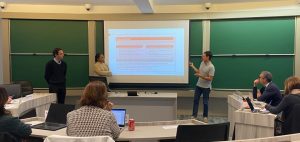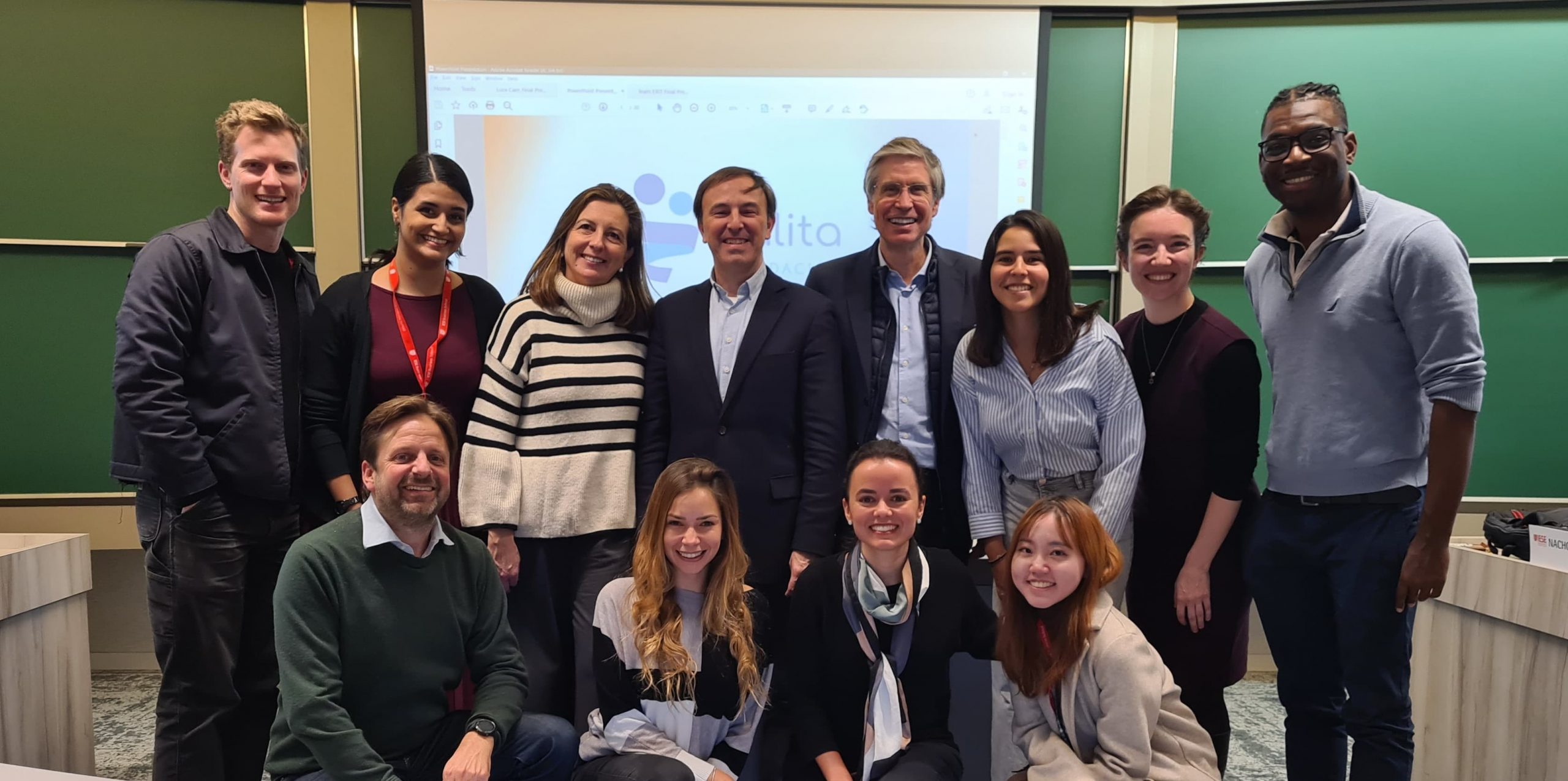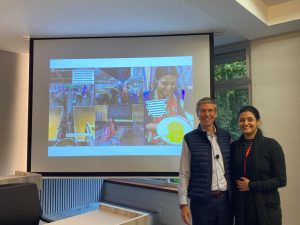My participation in the Social Impact Consulting elective course was the highlight of my second-year MBA at IESE.
While our curriculum is deeply rooted in case studies and class discussions, this course stood out for its immersive, hands-on approach and practical learning experiences.
The Social Impact Consulting module taught by Professor Joan Jane had a heavy focus on project-based work through collaboration with a non-profit organization. I delved into understanding their vision, priorities, and challenges, assuming the role of a consultant to offer solutions. This engagement allowed me to work within a team and an organizational setting. To bolster the practical engagement, vital frameworks were taught in class. These were further reinforced by real-life examples and global organizational case studies, offering a comprehensive learning journey. I believe that this course offers universal applicability across diverse career paths, regardless of the industry or sector.
In this post, my goal is to articulate the significance of this course and its relevance as an essential undertaking for all business school students, irrespective of the roles we ultimately pursue.
Consulting with Non-Profits:
In this course, our class was divided into 4 groups and assigned to 4 different non-profit organizations – Exit, Cares, Dental, and Talita. I was fortunate to be a part of team Talita. Talita is a non-profit dedicated to supporting children with intellectual disabilities. Working with Talita allowed my team and me to delve into their core themes of Social Inclusion and Academic Integration.
Engaging with the founders and stakeholders presented us with a valuable opportunity to hone our interpersonal skills and empathize with their perspectives and needs. Two major focus areas in class, the Theory of Change (ToC) and Impact Measurement, helped us think through challenges in a holistic way. ToC helped us see the larger picture, helping us map an organization’s input affect short-term outcomes and long-term impact. Impact measurement’s significance in qualitative settings and its role in community engagement and fundraising for long-term sustainability became clear.
Case-Learning:
Analyzing business cases like La Fageda and the Akshaya Patra Foundation revealed the power of storytelling in brand identity and the importance of non-profits achieving self-sustainability while upholding their altruistic roots. While exploring the case of Ferrer, we were joined by the Chairman Sergi Ferrer-Salat, who walked us through the vision and thought behind significant investments in social and environmental action, emphasizing the necessity of contextual understanding and empathy for sustainable change. Through the Robin Hood Foundation case, we developed an understanding of how due diligence and impact metrics can play a crucial role in long-term sustenance. Through more cases and real-life examples, we also learned of pitfalls that make creating impact difficult.
Business-Society Interdependence:
Acknowledging the increasing importance of social and environmental impact in businesses, this course underscored whether in social impact consulting or core business functions, integrating societal impact into business strategies offers numerous benefits. We learned how a strong social impact strategy attracts and retains talent, mitigates risks, drives innovation, attracts investment, aligns with regulatory trends, strengthens stakeholder relations, and enhances community engagement. Integrating social impact into business strategies is about creating value for shareholders, stakeholders, society, and the planet. It’s not just about philanthropy but recognizing the symbiotic relationship between businesses and the societies they serve, promoting sustainable growth and societal well-being.

The rewarding part about this course was presenting our ideas to help these non-profit organizations solve various issues.
Relevance for All:
The course’s theoretical frameworks and practical applications and business orientation has reshaped my perspective.
I joined the MBA after 7 years of experience working in non-profits where the work was meaningful, but sustainability and scalability were challenges. Now, I see clearly the power businesses have to support this work and/or create impact at scale.
Leaving the course, I’m convinced that understanding the fusion of social impact and business is key to constructing enduring organizations and empowered communities. This course lays the groundwork for envisioning ways to make a tangible difference in our work. That’s why I urge more business students, irrespective of your industry, to join in!
Read more about IESE’s Social Impact Consulting course here or check out this video.
Written by Shaan, MBA Class of 2024
Pursue your dream MBA! Take these next steps today:










Great insights! It’s inspiring to see how IESE MBAs can leverage social impact consulting to drive meaningful change while developing essential business skills.
This is a fantastic read! The insights into how IESE MBAs can benefit from social impact consulting are both valuable and thought-provoking. It’s great to see how integrating social impact into the MBA curriculum can enhance leadership skills and foster a greater sense of responsibility. Thanks for sharing these important perspectives!